Desinformation in den Medien der Republik Moldau dauert an. Teil 2

Photo 1. The MS of the ISHR. The Seminar “Disinformation in the media, how to recognize it and how to deal with it”. Chisinau, August 10, 2019
On August 10, in Chisinau, the Moldovan section of the ISHR held an interactive seminar as part of the project “MASS MEDIA, FORMING OPINION, HUMAN RIGHTS IN EASTERN PARTNERSHIP COUNTRIES AND RUSSIA”

Photo 2. The MS of the ISHR. An introductory statement was made by Gennady Kaunov, the project coordinator assistant and the moderator of the seminar.
There were 19 participants, the moderator of the seminar – the assistant to the project coordinator Gennady Kaunov and the speaker – journalist Natalya Shmurgun.
Among the participants of the seminar there was a candidate for the President of the Republic of Moldova, a politician, a member of the “Civil Congress” public movement, a lawyer, a representative of the “Femida” non-government organization, an ex-deputy of the Parliament of the Republic of Moldova, a vice-chairman of the “Our Home – Moldova” party, a former political prisoner, an ex-deputy of the Parliament of the Republic of Moldova, a member of the “Civil Congress” public movement, several independent journalists, an Anenii Noi district councilor, a representative of the “Lavaterra” non-government organization, and a scientific associate of the Cultural Heritage Institute of the Academy of Sciences of Moldova.
Speaker, Natalya Shmurgun, made a media presentation “Disinformation in the media, how to recognize it and how to deal with it”
The media presentation comprised video and photo materials on disinformation in modern mass media. Disinformation patterns in the media of Moldova were demonstrated. The techniques and methods that unscrupulous media use to attract the attention of an audience were disclosed. The scale of the spread of untruth in Moldova is quite large, since the previous rule, owning a whole media holding, which included several popular TV channels, Internet portals, financing a large number of bots and trolls on social networks, using paid experts, practically engaged in propaganda that misled big strata of the population of Moldova.
Hateful statements remain largely unpunished, despite the large number of cases identified in the public space and the media.

Photo 3. The MS of the ISHR. The seminar speaker Natalya Shmurgun is giving an example of manipulation in the Moldovan media by means of photo substitution.
One of the examples – given by the speaker – was information widely spread in the media that a representative of the ACUM opposition bloc, Dmitry Alayba, allegedly participated in another march of sexual minorities. A few days later it turned out that a photo montage had been made: the politician’s face was superimposed on a photograph with of the march. It should be noted that Moldovan society continues to have a negative attitude towards the LGBT people, and such manipulations are aimed at discrediting a particular politician among its voters.
The strengthening of statements based on prejudice and gender stereotypes has led to the increase of intolerance and discrimination against women, the most affected group, compared to the year of 2018, when the LGBT community the most frequently became the object of such rhetoric.
This rhetoric is largely caused by prejudice caused by conservative religious rhetoric, and sometimes radical, regarding family and traditional values, sin and immorality. This rhetoric is largely advancing in two dimensions. In the political dimension, the speech of hate is used as a tool to manipulate, defame opponents, ridicule, create false problems and threats, and consolidate some social groups against other groups. In the dimension of religious conservatism, the aggressive statements and information about homosexuals and transgender people are actively promoted, largely associating them with immorality, pedophilia, abnormality, and sin.
That is why the support provided by European organizations for the development and strengthening of sustainable civil society in Moldova is very important.
After the end of the media presentation, a discussion took place.
In particular, one of the independent journalists noted that although journalists try to be objective when covering any event, we must not forget that they contribute an element of their attitude to this event, and this sometimes can lead to the distortion of the end user information perception. Therefore, nowadays the need for critical thinking during the information perception increases tremendously.
He also gave an example of yet another manipulation: vagueness and mention in an article or report about only one part of an event can also create an incorrect and distorted opinion. Professional journalists very often resort to such a method.
Another young journalist noted that a professional journalist can quite easily determine whether there is an element of disinformation in the recurrent news or not. Unfortunately, the average reader does not have such an experience, and unscrupulous journalists often use this. Moreover, an average Internet user often does not try to criticize the material and analyze the sources of information and the degree of reliability.

Photo 4. The MS of the ISHR. Dmitry Chubashenko is expressing his point of view
Dmitry Chubashenko, the presidential candidate of the Republic of Moldova, reminded those present that nothing has changed in politics over many centuries, and naturally there is a constant struggle for power and money, and all means are used to attract attention, including such modern ones as social networks, but on a much larger scale. The language of hatred – promoted by politicians – is often aimed at other politicians and in turn provokes responses that are often also based on intolerance. Thus a vicious circle is formed, when hatred breeds hatred and each time indirectly affects society, especially the most vulnerable groups.
A member of the “Civil Congress” social movement, in his speech, noted that, unfortunately, it seems that we are sort of used to this phenomenon: the distortion of the truth and the use of language of hatred. Although social networks, such as Facebook, try to fight fake information with their efforts and close millions of suspicious accounts, this does not relieve journalists and bloggers of responsibility. Unfortunately, as this is said within the presentation, the media market is divided among individual players, and those journalists and experts who work for certain structures are not free to express their own opinions and forced to give sometimes distorted information.

Photo 5. The MS of the ISHR. The exchange of views during the break
One participant asked, “Is there a practice of punishment for the spread of misinformation, and how realistic is it to deal with such violations with the help of the law?”
The speaker, Natalya Schmurgun, mentioned the case of a German journalist from “Der Spigel” magazine and winner of the most journalists’ prizes, Klaas Relotius, who distributed fictional reports and interviews.
A lawyer, a representative of the “Femida” non-government organization, told about the cases when victims of false information had gone to court and received compensation for moral damage, because Moldovan legislation provides the responsibility for defamation, and those media that posted this information have to apologize and publish denials. Unfortunately, such cases are quite rare, since many people either do not know their rights or do not want to deal with our judicial system, which is largely dependent, or the spread of misinformation comes from a foreign source, and cooperation with international structures is necessary in this case.
An ex-deputy of the Parliament of the Republic of Moldova expressed regrets that our state had been considered to be as a disappearing state. As you know, one lie gives rise to the next lie, and so on, incrementally. The state deceived and robbed people, and such situation has been going on for many years. Thus the results of this lie – people do not trust the state and simply leave this country. According to public opinion poll, almost 90 percent of young people dream of going abroad after graduation. If we plan to build our future on the foundation of lie and misinformation, then we will have no future.

Photo 6. The MS of the ISHR. The continuation of communication after the seminar
After the completion of the official part, the participants continued informal communication during the stand-up meal.
#CivilSocietyCooperation

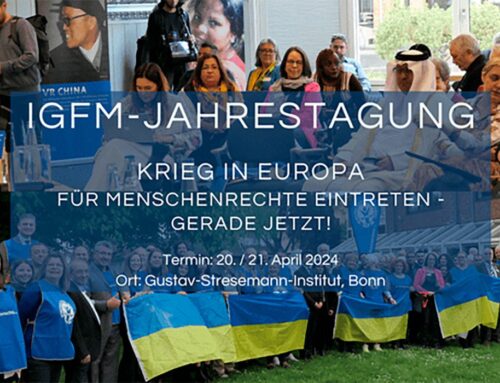
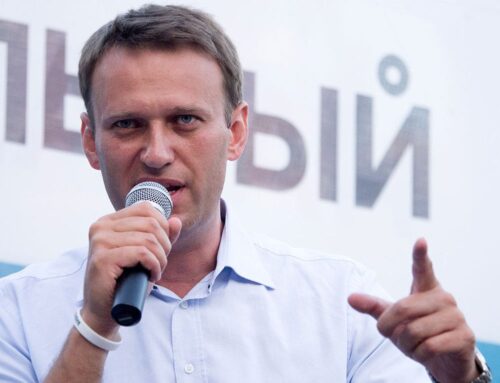
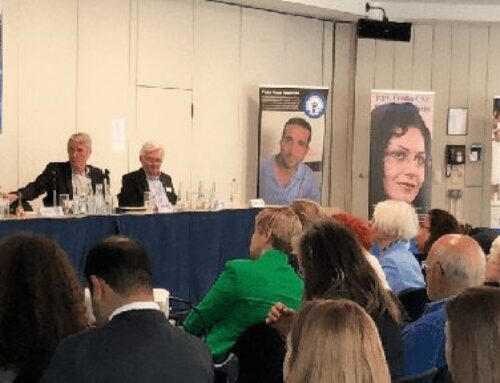

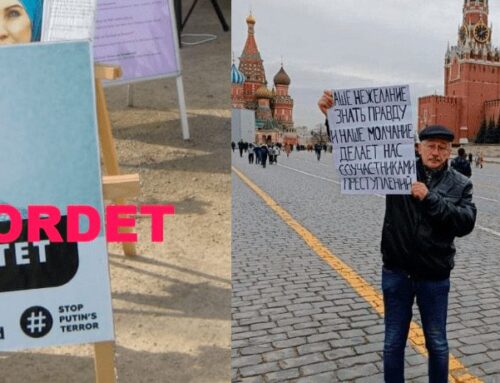
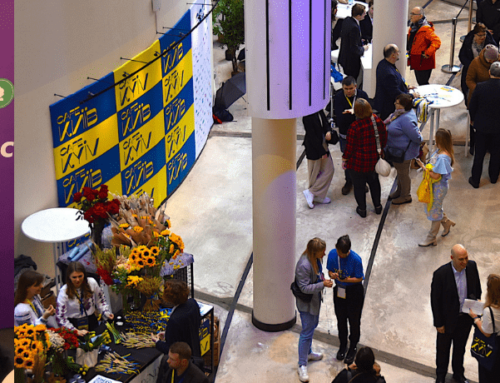
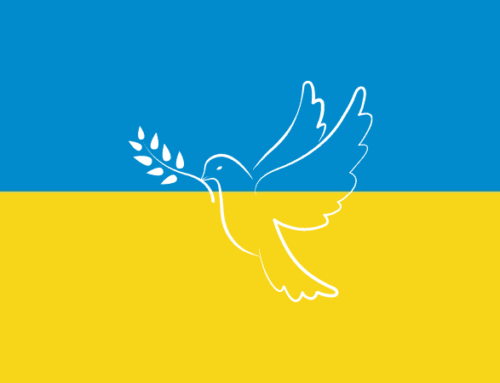
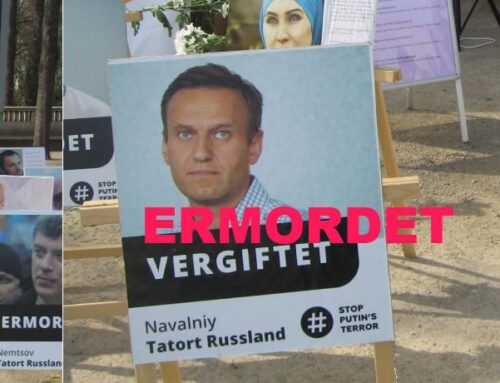
Leave A Comment